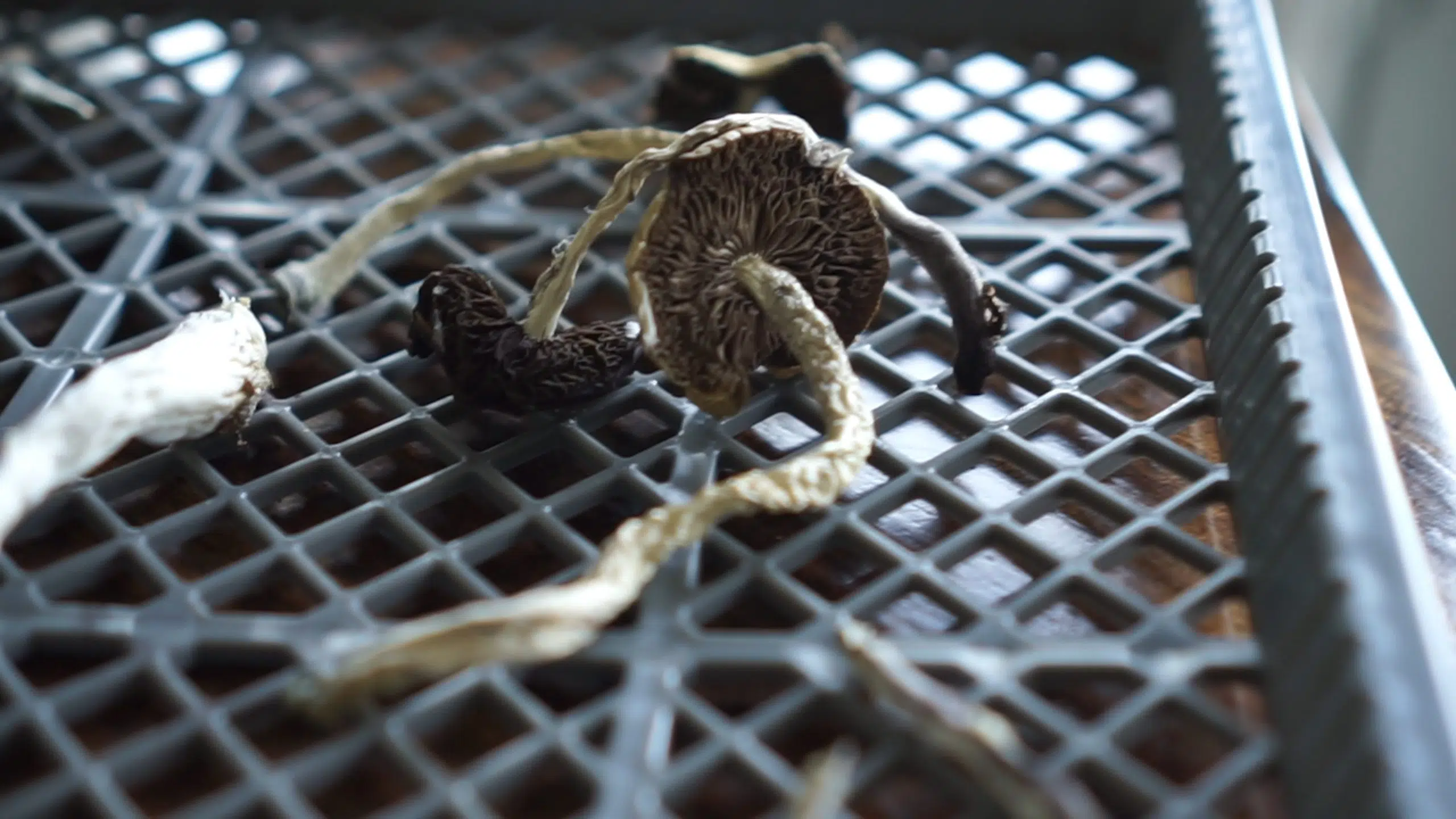
Selected doctors and therapists have permission to use magic mushrooms with Health Canadas permission.
Four months after Health Canada allowed a handful of palliative care patients to use Psilocybin as a way to relieve end-of-life suffering. More than a dozen health professionals can use the psychedelic drug themselves to help develop therapies for future use. TheraPsil is a non-profit coalition dedicated to helping Canadians in medical need access legal, Psilocybin-assisted psychotherapy to treat end-of-life distress. Communications director at TheraPsil, Holly Bennett, said that “experience is the best teacher”.
The “Trip”
Bennett said that “abstract concepts can be explored through a psychedelic experience” and “that you’re not in an ordinary state of consciousness”. The patient will ingest the Psilocybin in a tea, or by a capsule. The psychedelic experience usually lasts between 6 to 8 hours and the therapist is there through the entire experience.
“During the process the therapist is there but it’s a hands-off experience, they want the patient to look inward.”
The patient will be covered by a sheet and wear an eye mask, so they won’t be distracted by any visual stimulants. Music will be
playing. The playlist is often curated and customized to the individual patients.
“It helps the patient go through various emotions and feelings just like music can do, but it will be amplified in the experience. One patient wanted a song that he meditates too.”
The therapists’ job is to be a “safeguard” and to take notes of things the patient may verbalize. This is to jog their memory when the therapy is done. Bennett said that 6 to 8 hours may seem like a long time but for the patient time “flies by”.
“Cancer as being in a box”
During the trip, the patient will experience colours and shapes. They could also have a vivid visuals and see tangible things. One individual who had a psychedelic psychotherapy session, helped her integrate into lasting healing.
“She said in her session she came across a box on the floor and that she saw her cancer as being in that box. The patient described the cancer as being separate from her body, as if she could just put it on the shelf. The cancer did not have control of her. She was able to heal.”
Bennett said that these sessions don’t just help the patient but help the family.
“Knowing that the patient has come to terms with death, the family will know that they are okay and that makes them okay. It’s a remarkable ripple effect on the individuals involved.”
Where it began
Founder of TheraPsil, Dr Bruce Tobin, Psychotherapist and clinical counselor, in Victoria, British Columbia was working with a client who had been diagnosed with terminal cancer and expressed interest in trying psychedelic psychotherapy.
“She was dealing with anxiety, depression and hopelessness knowing that she had this terminal diagnosis.” – Bennett
Dr Bruce Tobin, “could lose his license” if he proceeded with the therapy at this time. So, he asked the government for permission.
“Legislation, subsection 56, in the Canadian drugs and substances act, says the Minister of Health can grant any person or class an exemption from the Canadian drugs and substances act, to use a substance for medical scientific purpose or otherwise in the general public interest.”
Dr. Tobin wanted to not only do psychedelic psychotherapy for the patient he wanted to help other end-of-life stress patients.
“After 3 years back and forth with Health Canada, his application was denied. This woman was waiting for so long, it was distressing for everyone involved.”
Then TheraPsil was formed in 2019, made up of healthcare professionals, patients, community members, and advocates. The coalition decided to shift their strategy. They decided to get patients to submit their own applications to the Minister.
“They needed to make it clear and say I am here, I am dying, I cannot handle the emotional anguish. I know that Psilocybin therapy can help.”
4 different applications were submitted with the support of TheraPsil. After more than 100 days of advocating, tweeting and getting media involved, the Minister of Health, Patty Hajdu, granted these exemptions for terminally ill patients. This was the first time that section 56 exemptions for Psilocybin had been approved for patients, since Psilocybin was made a controlled substance in 1974, in Canada. As of January 2021, TheraPsil has now supported 24 patients in 5 different provinces access legal, psilocybin-assisted psychotherapy.
Where it’s going
Bennett said that TheraPsil is very cautious about expanding too quickly.
“We need to make sure that the same level of care of the first 4 individuals is applied to every single patient. We are a small team.”
They would love to eventually help people with PTSD, addictions, depression, anxiety and eating disorders. Bennett also said that Psilocybin can help with cluster headaches.
“If we get more funding and more team members, we could have the ability to expand and partner with other organizations. We would love to help as many people as we can.”
TheraPsils Vision
- Canadians with severe psychological distress deserve access to effective new therapies, in consultation with a physician, which can improve their quality of life/death.
- When effective therapy involves a prohibited/controlled substance, we challenge the laws that are in conflict with science and compassionate care.
- Care providers must work collaboratively with patients toward healing vs merely the suppression of psychological trauma, addiction, illness, and pain.













Comments